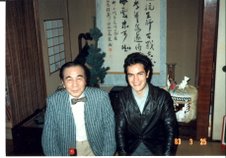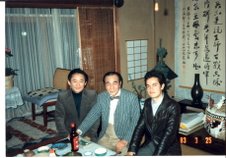05 June 2010
XVI Festival Latinoamericano de Música, Day 2
The main event of the following day - 27 May - was the concert by Ensamble CG from Colombia. They had given a workshop the previous day, during which their commitment to new music and to working together had been made apparent. This concert put these qualities very much in evidence, displaying a technical handling and a tightness rarely heard in new music ensembles. It would be invidious to single out individual pieces in their very well-chosen programme, but I will do so on special grounds: because she was the festival’s main dynamo, Diana Arismendi, whose Epigramas showed a sensitive use of voice, guitar and percussion and a gift for harmonic clarity. And, because this was a celebrations of her seventieth birthday, Graciela Paraskevaídis’s nada, a piece I found arresting in every respect. The simplicity of the material, written for the stark forces of one solo voice with nearly no text, gathered momentum through the simple device of progressive ascent in pitch, until the intensity was almost unbearable. This exposed structure was superbly paced by the singer Beatriz Elena Martínez, whose control and absolute immersion in the piece were breath-taking.
XVI Festival Latinoamericano de Música
23 September 2007
Encounter in La Paz
October will see the centenary of Conservatorio Nacional de Música, one of the most venerable musical institutions of Bolivia. For this great occasion a small team of visionaries has put together an Encounter of Bolivian Musicians, bringing together an array of musical personalities connected with the Conservatorio, which means, give or take, all the country's main musicians and composers. The original proposal had been to bring back to Bolivia all those who are working abroad too, and the instigator, a dynamo of energy and inspiration by the name of Luz Bolivia Sánchez, had secured the funding to make this possible. The fact that this extended reunion of expatriates is going to take place only partially and that the scope of the events is going to be scaled down is due to circumstances that I would like to understand better before I decry them on these pages, but the fact that the Encounter is going ahead at all is a tribute to Luz Bolivia's enormous dedication, inspiration and powers of persuasion.
The Encounter will take place between 4 and 12 October. The schedule is still being worked on, but I so far know that there will be two performances of my Una música escondida (A Hidden Music) by the Conservatoire Orchestra conducted by Bolivia's foremost conductor, Ramiro Soriano, and with Grace Rodríguez at the piano. Performances of other pieces are in preparation, I am told, and I will mention them when I know more.



